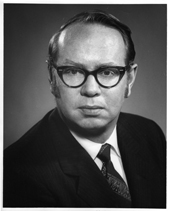
Early in Ollie Wight’s career, he recognized what separated well-managed companies from those out of control. A few leading-edge companies had planning capabilities that continuously reflected what they needed to do and, as well, what they were able to do. Working as a team, everyone contributed to the company-wide plan and its execution.
Fire-fighting dominated the second group; they were constantly reacting to the latest crisis. Poor customer service and productivity was the price they paid. Also lost in the confusion were performance measurements. Until the plans are realistic, neither managers nor workers can be held accountable. Finger-pointing fills this void with its divisive impact on teamwork.
Closing this gap between outstanding versus underperforming companies became Ollie’s crusade. He formed the Oliver Wight company in 1969 and asked Walter Goddard to join him in 1970. The company’s single-minded mission was “To help executives manage their business more professionally.” Courses were to describe only proven, practical approaches – solutions that generated significant results. The most important measurement of his company’s success was having clients achieve Class A results.
Over the years, they led the evolution of MRP into MRP II and expanded Production Planning into Sales & Operations Planning. From strategy to tactics, these processes integrate sales, marketing, finance, manufacturing, engineering, distribution, purchasing, suppliers, and customers. Everyone is linked to the company’s game plan.
Yet, many companies fail to install these processes and tools properly. To avoid the pitfalls, Ollie developed the “Proven Path,” a step-by-step roadmap to successful implementation. Its focus is on user understanding, from the CEO to the front-line operators. Only when they say ‘it’s ours’ have they accepted ownership and accountability for changing how they will do their jobs.” To evaluate their progress, the original Oliver Wight Checklist was created in 1977. By objectively answering the detailed questions in the latest version, the level of proficiency can be determined and categorized as A, B, C, or D.
The right set of tools and processes in the hands of educated users produces substantial improvements. As the word spread, Oliver Wight courses filled quickly. To meet the growing needs, a new entity was created in 1979: Oliver Wight Education Associates, with Walt as president. Eight business executives, each with a Class A track record, were asked to join.
Ollie died in 1983 at the age of 53. He lived his dream passionately. Through his courses, presentations, articles, books, and video courses, Ollie educated and inspired thousands of executives. Hundreds of companies benefitted from his enduring insights. He witnessed the changes. To keep the crusade alive was Ollie’s greatest wish.
In the subsequent years, Oliver Wight Education Associates grew into a global business. In 1993, Walt reorganized the business into Oliver Wight International with offices in the United Kingdom, Australia, and the United States. Oliver Wight International remains committed to helping companies align and integrate their business processes to achieve greater customer satisfaction and financial performance. Continuing Ollie’s requirement that all principals are not only educators, facilitators, and coaches, first they must be successful practitioners. Before joining the firm, all have played key roles in Class A implementations.
In 1998, Walt switched hats, from chairman of the board to chair emeritus. When asked to pick the best of Ollie’s many insights, Walt chose Ollie’s description of leadership:
“For a boss, you’ll do what you have to do;
For a leader, you’ll do what you can do.”
Helping you empower your leaders to achieve business excellence remains our mission.

